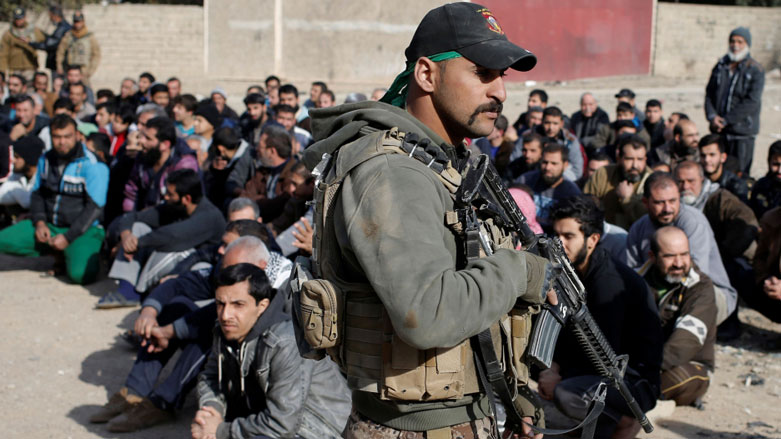UN launches new Iraq counter-terrorism program; will open Baghdad office

ERBIL (Kurdistan 24) – A UN agency and the government of Iraq announced the launching of a new program aimed at providing legal, technical, and capacity building assistance to the country's prosecution of thousands of captured Islamic State (IS) fighters, and profiting from lessons learned in recent years of fighting the group.
Iraq's Council of Ministers (COM) released a statement on Wednesday praising the set of practical measures outlined in the plan, which it said would be of great help "to the judiciary in Baghdad, Mosul, and other provinces, despite the difficulties in completing the investigation of a large number of accused terrorists, numbering at about 11,000."
The United Nations Office on Drugs and Crime's (UNODC) new 2018-2019 program, entitled, “Lessons learned from Iraq’s counter-terrorism efforts and response to future challenges: Iraq after Dae’sh,” was officially announced at a ceremony attended by COM officials, as well as those from the Prime Minister's Office, Ministry of Foreign Affairs, and several diplomatic missions operating in Baghdad.
It was also announced that the UNODC would open a new office in Baghdad to assist the Iraqi government in implementing the guidelines.
“Iraq suffered most from terrorism, being the greatest victim of terrorist activities in the region and a target of several terrorist groups and militants,” said Christine Albertin, UNODC Representative for Middle East and North Africa, in a UN statement.
She also spoke of milestones already reached as a result of UNODC's efforts in Iraq, "like, for example, an increase in criminal justice investigators who have started using new investigation techniques and tools, better understanding of Special Investigation techniques, and the development of the methodology in obtaining and processing digital evidence."
UNODC Executive Director Yuri Fedotov said, “Ending the scourge of terrorism and protecting people is a priority that concerns us all."
Although Iraqi Prime Minister Haider al-Abadi declared victory over IS in 2017, the group continues to carry out an insurgency as it did prior to 2014, with regular bombings and attacks in cities across Iraq.
Activities of the jihadist group are becoming more and more common in recent months, with a variety of tactics that include using fake security checkpoints to kidnap residents and Iraqi security force members, most recently in the provinces of Kirkuk and Diyala, where two IS leaders have been reported killed.
Peshmerga, who were forced by Iraqi forces and the pro-Iran Hashd al-Shaabi militias to withdraw from disputed territories in those provinces have repeatedly warned of the possibility of IS making a comeback in these and other areas.
On Wednesday, Iraqi security forces discovered large amounts of explosives beneath an ancient citadel in Nineveh province, preventing an apparent IS plan to destroy it.
The day before, Prime Minister Abadi said in a speech that Iraq would take “all necessary measures” to prevent-cross border assaults by IS in Syria.
